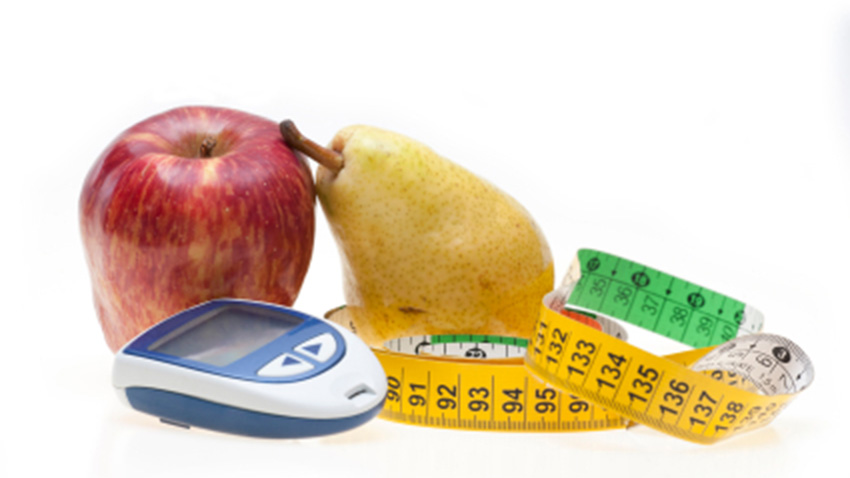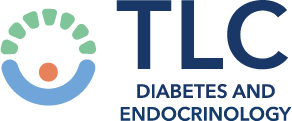Chronic Disease Education
Acute Condition Education
Working with your Family Physician
Working with Allied Care Providers
Polycystic Ovary Syndrome

Knowledge is Power.
True/False - Quiz: Do You Understand Polycystic Ovary Syndrome?
Information - Polycystic Ovary Syndrome
 Polycystic ovary syndrome (PCOS) is a hormonal disorder that disrupts a woman’s endocrine system and increases her levels of androgen. It’s common among women of reproductive age, and while the exact cause of PCOS is unknown, there is a link between polycystic ovary syndrome and type 2 diabetes.
Polycystic ovary syndrome (PCOS) is a hormonal disorder that disrupts a woman’s endocrine system and increases her levels of androgen. It’s common among women of reproductive age, and while the exact cause of PCOS is unknown, there is a link between polycystic ovary syndrome and type 2 diabetes.
Symptoms of Polycystic Ovary Syndrome
Normally, the follicles in a woman’s ovaries release an egg to the uterus for fertilization. In women with polycystic ovary syndrome, immature follicles form cysts or lumps, so the follicles can’t release eggs. Women with PCOS often don't have menstrual periods or have irregular periods, which often makes getting pregnant difficult. PCOS symptoms include:
• Irregular, heavy or painful periods
• Acne
• Excess hair growth
• Weight gain
• Infertility
PCOS & Diabetes
 Some experts believe that insulin resistance can create an adverse reaction within the endocrine system and trigger type 2 diabetes. If you have type 2 diabetes, your pancreas doesn’t produce enough insulin, or your body does not properly use the insulin it makes, causing glucose (sugar) to build up in your blood. Researchers in one study of over 8,000 women found that those who had PCOS were 4 to 8.8 times more likely to develop type 2 diabetes than women who didn’t have polycystic ovary syndrome. In the ovary, insulin can increase male hormone production and therefore put you at risk for polycystic ovary syndrome and its associated symptoms. If you have PCOS, your primary healthcare provider or endocrinologist may recommend that you undergo screening for type 2 diabetes.
Some experts believe that insulin resistance can create an adverse reaction within the endocrine system and trigger type 2 diabetes. If you have type 2 diabetes, your pancreas doesn’t produce enough insulin, or your body does not properly use the insulin it makes, causing glucose (sugar) to build up in your blood. Researchers in one study of over 8,000 women found that those who had PCOS were 4 to 8.8 times more likely to develop type 2 diabetes than women who didn’t have polycystic ovary syndrome. In the ovary, insulin can increase male hormone production and therefore put you at risk for polycystic ovary syndrome and its associated symptoms. If you have PCOS, your primary healthcare provider or endocrinologist may recommend that you undergo screening for type 2 diabetes.
 There is no cure for polycystic ovary syndrome, but your physician may refer you to an endocrinologist for PCOS management. The most important treatment is lifestyle changes and weight loss in women who are overweight or obese. There have been studies that have shown that even just a five percent loss in weight dramatically improves symptoms and actually can regulate periods so exercising regularly. Often, healthcare providers prescribe birth control pills to regulate your periods, reduce androgen levels and clear acne. If you have PCOS and type 2 diabetes, you'll work with your endocrinologist to manage both your diabetes and polycystic ovary syndrome.
There is no cure for polycystic ovary syndrome, but your physician may refer you to an endocrinologist for PCOS management. The most important treatment is lifestyle changes and weight loss in women who are overweight or obese. There have been studies that have shown that even just a five percent loss in weight dramatically improves symptoms and actually can regulate periods so exercising regularly. Often, healthcare providers prescribe birth control pills to regulate your periods, reduce androgen levels and clear acne. If you have PCOS and type 2 diabetes, you'll work with your endocrinologist to manage both your diabetes and polycystic ovary syndrome.
Talk to your endocrinologist if you'd like more information on polycystic ovary syndrome.
Visit HealthChoicesFirst.com for more videos and resources on diabetes.
Print this Action Plan and check off items that you want to discuss with your healthcare provider
-
In women with polycystic ovary syndrome, immature follicles form cysts or lumps, so the follicles can’t release eggs. Women with PCOS often don't have menstrual periods or have irregular periods, which often makes getting pregnant difficult.
-
PCOS symptoms include irregular, heavy or painful periods, acne, excess hair growth, weight gain and infertility.
-
If you have PCOS, your primary healthcare provider or endocrinologist may recommend that you undergo screening for type 2 diabetes. Researchers in one study of over 8,000 women found that those who had PCOS were 4 to 8.8 times more likely to develop type 2 diabetes than women who didn’t have polycystic ovary syndrome.
-
The most important treatment is lifestyle changes and weight loss in women who are overweight or obese. There have been studies that have shown that even just a five percent loss in weight dramatically improves symptoms and actually can regulate periods so exercising regularly.
-
There is no cure for polycystic ovary syndrome, but your physician may refer you to an endocrinologist for PCOS management.


